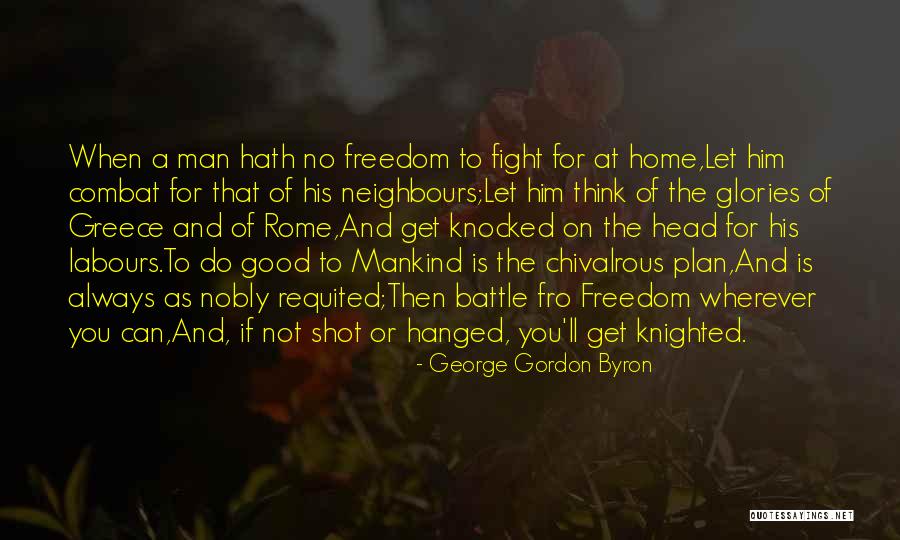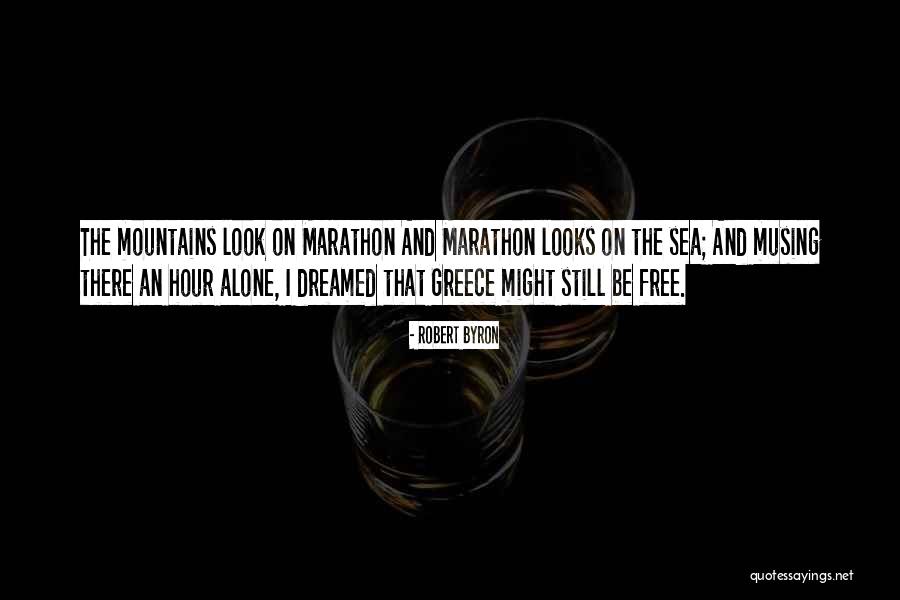Byron Greece Quotes & Sayings
Enjoy reading and share 5 famous quotes about Byron Greece with everyone.
Top Byron Greece Quotes

When a man hath no freedom to fight for at home,
Let him combat for that of his neighbours;
Let him think of the glories of Greece and of Rome,
And get knocked on the head for his labours.
To do good to Mankind is the chivalrous plan,
And is always as nobly requited;
Then battle fro Freedom wherever you can,
And, if not shot or hanged, you'll get knighted. — George Gordon Byron

Goethe in Weimar sleeps, and Greece, Long since, saw Byron 's struggle cease. — Matthew Arnold

The mountains look on Marathon And Marathon looks on the sea; And musing there an hour alone, I dreamed that Greece might still be free. — Robert Byron

Fair Greece! sad relic of departed worth! Immortal, though no more! though fallen, great! — Lord Byron

Byron published the first two cantos of his epic poem Childe Harold's Pilgrimage, a romanticized account of his wanderings through Portugal, Malta, and Greece, and, as he later remarked, "awoke one morning and found myself famous." Beautiful, seductive, troubled, brooding, and sexually adventurous, he was living the life of a Byronic hero while creating the archetype in his poetry. He became the toast of literary London and was feted at three parties each day, most memorably a lavish morning dance hosted by Lady Caroline Lamb. Lady Caroline, though married to a politically powerful aristocrat who was later prime minister, fell madly in love with Byron. He thought she was "too thin," yet she had an unconventional sexual ambiguity (she liked to dress as a page boy) that he found enticing. They had a turbulent affair, and after it ended she stalked him obsessively. She famously declared him to be "mad, bad, and dangerous to know," which he was. So was she. — Walter Isaacson





